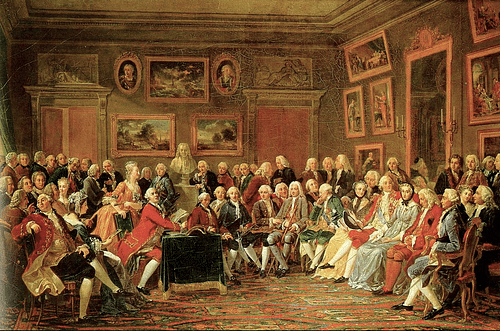At the onset of the French Revolution, women primarily inhabited the private realm, their roles largely defined by familial responsibilities and domestic chores, while men operated in the public sphere. Yet, the revolutionary cries for equality and liberty quickly resonated with women across various societal strata, igniting a desire among them to express their political views and address their grievances. Women from the working class notably took to the streets, driven by everyday struggles such as the high cost of bread.
- Blogs
- French-revolution
- Womens-influence-in-french-revolution-662f5e34bdccdd0001d2d7c6
Women's Influence in French Revolution: A Legacy of Activism
French Revolution • 29 Apr, 2024 • 3,53,314 Views • ⭐ 1.0
Written by Shivani Chourasia

The Societies

The French Revolution emerged from Enlightenment ideals. Eighteenth-century thinkers like Voltaire and Jean-Jacques Rousseau provoked a reevaluation of the prevailing norms regarding education, social class, and individual rights. These discussions often took place within the sophisticated evening gatherings of Parisian high society, known as salons.
Predating the Revolution, these salons were typically orchestrated not by prominent men but by their elegant wives, who came to be recognized as "salonnières." These women, despite lacking formal rights, frequently matched the intellectual stature of the men in their circles. The salons served as crucial venues for these hostesses to wield considerable, albeit indirect, political influence, extending their impact beyond the confines of their homes.
The Role of Women in the French Revolution

From the outset of the French Revolution, women were key contributors, advocating for significant transformations within French society. One of their primary objectives during the Revolution was securing the right to vote and achieving equal pay.
To amplify their demands, women established numerous political organizations and started various publications. Among these, the "Society of Revolutionary" and "Republican Women" were notably prominent. Across France, approximately 60 women's clubs sprang up in various cities, indicating the widespread nature of their activism.
During the early stages of the revolution, the new government enacted several laws that positively affected women's lives. Compulsory education for girls was introduced through state schools. Marriage was redefined as a contract to be freely entered into and recognized under civil law. Divorce became legally accessible to both men and women, enhancing their legal autonomy. Additionally, women gained the opportunity to train for professions, become artists, or manage small businesses.
However, the struggle for voting rights and equal wages persisted. Under the Reign of Terror, the revolutionary government took drastic measures, such as shutting down women's clubs and prohibiting their political engagement. Many women faced arrest, and some were even executed.
The movement for women's voting rights and equal wages continued to evolve over the next two centuries across numerous countries. The fight for suffrage became part of the international suffrage movement in the late 19th and early 20th centuries. It was not until 1946 that French women finally achieved the right to vote.
From the Salons to the Streets
